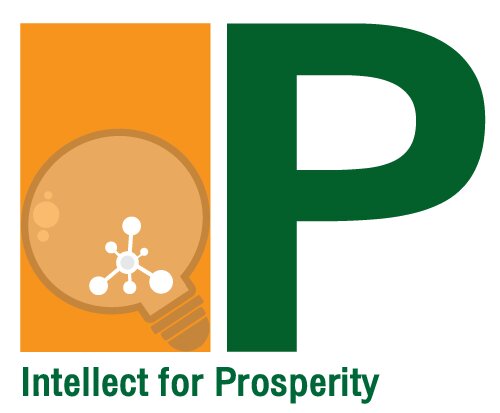Best Public-Private Partnerships (PPP) Lawyers in Thailand
Share your needs with us, get contacted by law firms.
Free. Takes 2 min.
Or refine your search by selecting a city:
List of the best lawyers in Thailand
Legal guides written by SIAM LEGAL INTERNATIONAL:
- Defamation Laws in Thailand: Criminal Charges and Civil Suits
- The State of Thailand’s Long-Term Resident (LTR) Visa Program in 2025
- The Penalties Of Not Filing Your Income Tax Return As A Foreigner In Thailand
About Public-Private Partnerships (PPP) Law in Thailand
Public-Private Partnerships, also known as PPPs, are collaborative arrangements between government entities and private sector companies. In Thailand, these partnerships are formed to develop, finance, operate, and maintain infrastructure or public services projects. The main purpose of PPPs is to leverage private expertise, innovation, and investment to meet public needs more efficiently and cost-effectively than the public sector could achieve alone. Thailand’s legal framework for PPPs has evolved to provide transparency, accountability, and clear processes for both Thai and foreign investors engaging in this sector.
Why You May Need a Lawyer
Legal advice is crucial in public-private partnership projects because these arrangements involve complex regulatory, financial, and contractual matters. You may require legal help in the following situations:
- Drafting and negotiating PPP contracts
- Ensuring compliance with relevant Thai laws and regulations
- Participating in the PPP project bidding process
- Conducting due diligence on potential projects or partners
- Dispute resolution between parties involved in a PPP
- Managing risks related to project financing and performance
- Understanding tax implications for PPP projects
- Obtaining necessary government permits and approvals
- Structuring joint venture or special purpose vehicle (SPV) entities
- Foreign investment and ownership restrictions
Local Laws Overview
Thailand’s key legislation for public-private partnerships is the Public-Private Partnership Act B.E. 2562 (2019), also known as the PPP Act. The PPP Act and its subordinate regulations set out procedures, requirements, and the approval process for PPP projects. Key aspects of the legal framework include:
- Establishment of the Public-Private Partnership Committee (PPP Committee) to oversee PPP activity
- A requirement for feasibility studies, stakeholder consultations, and environmental impact assessments
- Transparent project selection and auction procedures to ensure fair competition
- Clear mechanisms for contract monitoring, amendment, renewal, and termination
- Rules regarding foreign investment participation and capital composition
- Specific thresholds for project value that trigger different approval procedures
- Dispute resolution options including negotiation, arbitration, and court proceedings
- Frameworks for government support and guarantees, where applicable
- Guidelines for land acquisition and public stakeholder engagement
Frequently Asked Questions
What is a Public-Private Partnership (PPP) in Thailand?
A PPP in Thailand is a formal collaboration between a government agency and one or more private sector entities to develop or manage public infrastructure or deliver public services, governed by the PPP Act and related regulations.
Which types of projects are suitable for PPPs in Thailand?
Projects that require significant investments and expertise, such as transportation networks, airports, water supply, hospitals, public utilities, schools, and waste management facilities, are typically suitable for PPPs.
Who oversees PPP projects in Thailand?
The PPP Committee, an inter-ministerial body, is responsible for overseeing, screening, approving, and monitoring PPP projects under the guidance of the PPP Act.
What is the process for initiating a PPP project?
A government agency identifies a project, conducts a feasibility study, prepares project documents, and submits them to the PPP Committee for screening and approval. If approved, private partners are selected through a transparent bidding process.
Can foreign companies participate in PPP projects in Thailand?
Yes, foreign companies may participate, subject to laws on foreign investment, sector-specific restrictions, and shareholding limits. Legal advice is essential to navigate these regulations.
What are the main risks in PPP projects?
Main risks include financial risks, construction or completion delays, regulatory changes, changes in demand or usage, and possible disputes regarding contract performance or interpretation.
How are disputes resolved in PPP projects?
Disputes are typically resolved through negotiation between the parties. If unresolved, arbitration or court proceedings are commonly used methods, as stipulated in the PPP contract.
Are there government incentives for PPP projects?
Some PPP projects may be eligible for government support, such as guarantees or financial contributions, particularly if the project serves significant public interest or involves essential infrastructure.
How long does it take to approve a PPP project in Thailand?
Approval timelines vary based on project type and value. Generally, the process can take several months to over a year, given requirements for feasibility studies, public consultations, and multiple rounds of review.
Why is legal due diligence important in PPP projects?
Legal due diligence helps identify potential legal and regulatory issues, ensures compliance with Thai law, and helps structure the project to minimize risks and maximize success for all parties involved.
Additional Resources
For more information or guidance on PPP in Thailand, consider consulting the following organizations and resources:
- Office of the Public-Private Partnership Committee (PPP Office) - primary governmental body overseeing PPPs
- Ministry of Finance of Thailand
- Board of Investment (BOI) - for information on investment promotions and foreign participation
- Thailand Arbitration Center (THAC) - for dispute resolution services
- Local and international law firms with expertise in PPPs and infrastructure projects
- Industry associations such as the Thai Contractors Association
Next Steps
If you are considering involvement in a public-private partnership project in Thailand and require legal assistance, you should:
- Identify your specific legal needs and objectives in relation to the PPP project
- Prepare documentation and background information about your project or interests
- Research and contact law firms or legal specialists with proven experience in PPP law and infrastructure projects in Thailand
- Request an initial consultation to discuss your legal options, timelines, and costs
- Ensure your legal advisor is familiar with the PPP Act and relevant regulations
- Collaborate closely with your lawyer throughout project planning, bidding, contracting, and execution phases
A legal expert can help you navigate the complex PPP regulatory landscape, protect your interests, and contribute to the successful development and operation of your project in Thailand.
Lawzana helps you find the best lawyers and law firms in Thailand through a curated and pre-screened list of qualified legal professionals. Our platform offers rankings and detailed profiles of attorneys and law firms, allowing you to compare based on practice areas, including Public-Private Partnerships (PPP), experience, and client feedback.
Each profile includes a description of the firm's areas of practice, client reviews, team members and partners, year of establishment, spoken languages, office locations, contact information, social media presence, and any published articles or resources. Most firms on our platform speak English and are experienced in both local and international legal matters.
Get a quote from top-rated law firms in Thailand — quickly, securely, and without unnecessary hassle.
Disclaimer:
The information provided on this page is for general informational purposes only and does not constitute legal advice. While we strive to ensure the accuracy and relevance of the content, legal information may change over time, and interpretations of the law can vary. You should always consult with a qualified legal professional for advice specific to your situation.
We disclaim all liability for actions taken or not taken based on the content of this page. If you believe any information is incorrect or outdated, please contact us, and we will review and update it where appropriate.
Browse public-private partnerships (ppp) law firms by city in Thailand
Refine your search by selecting a city.

















